- Home
- Joel Goldman
Final Judgment Page 18
Final Judgment Read online
Page 18
Mason had parked his car in a lot on the opposite side of City Hall. He crossed Oak and continued walking west on Twelfth Street, passing the courthouse just as Vanessa Carter came off the courthouse steps onto the sidewalk. He had his head down, and he nearly bumped into her. She was wearing a full-length black wool coat with a fur collar, a flat-brimmed hat cast to one side of her head, and dark glasses. He took a step back when he recognized her.
“Don’t look so surprised,” she told him. “They still let me in the Courthouse.”
Mason struggled for the right thing to say. “Good for them.”
“Good for me and good for you. I get a call now and then to fill in pro tem if one of the judges is sick. It’s almost funny. They don’t really know what to do with me. I was a damn good judge and everyone knows that, but the rumors about why I quit hang around like a bad smell. It’s like they’re letting me stick one toe at a time back into the water to make sure I don’t clear out the whole damn pool.”
Mason sighed, relieved that another piece of her life was falling back into place. “That’s great. Really great.”
“You better believe it is, and I’ll be goddamned if I’m going to let some two-bit blackmailing piece of scum ruin it for me again.” She took him by the arm, her fingers piercing his jacket. “I can’t afford to lose this all over again. You’ve got to make this go away. I don’t care what you have to do. Now, promise me,” she said, holding his eyes.
He felt a greater responsibility for Vanessa Carter than he did for many of his clients, most of whom were guilty. Even the ones who weren’t had usually done something stupid enough to make them suspects. They were in trouble because of what they had done. Even so, he worked the cops, the case, and the system to get them the best result he could. But Vanessa Carter was in trouble because of what he had done. That she could have told Ed Fiori no when he pressured her to release Blues on bail didn’t matter. Mason had put her in the position of having to make that choice. That was his burden, not hers.
He nodded. “Whatever it takes.”
When Mason got back to his office, there was a message on his voice mail.
“Lou, it’s Lari Prillman. I called all of Keegan’s former employers. Every one of them said he was a good employee they’d like to have back. One woman even cried when I told her he’d been killed and asked where she could send flowers. Let me know if I can do anything else.”
Mason saved the message and called her.
“Is that unusual?” he asked her.
“Is what unusual?”
“For employers to give out that kind of information about former employees. I thought they were too worried about getting sued to give references.”
She paused before answering. “I admit it’s not typical, but when I told them that Keegan had been murdered and that I represented his last employer, they didn’t hesitate at all. Why should they?”
“No reason, at least not that I can think of. Do me another favor?”
“At my hourly rates, you can’t afford my favors.”
“Then charge it to Galaxy. Saturday night when we first got to your office, one of your phone lines was lit up. Whoever took the CD from your safe made a call. Check with the phone company. Let’s see who he called.”
“Since that may be a favor for both of us, I won’t even charge you. I’ll fax the records to you when I get them.”
He stared at the phone after he hung up, debating whether to call Abby. He ran through the litany of reasons. He’d been unfair, too hard and too jealous. Josh Seeley’s wife was probably guilty of the same behavior toward the senator. Maybe Abby hadn’t chosen the best way to defuse Mrs. Seeley’s jealousy, but that didn’t mean their day together had been a sham. Abby just wasn’t that type.
What griped him, and kept his hand from the phone, was that she hadn’t told him what was going on and asked for his help. It was all about honesty, he told himself with puffed-up pride. Then he thought about Vanessa Carter and realized he’d never told Abby what he’d done to the judge. It was a lot easier to insist that someone come clean if it was their laundry instead of his. He chided himself for setting the bar higher for Abby than he had for himself, then dialed her number.
He was only partially disappointed when she didn’t answer. At least he got to hear her voice ask him to leave a message. He told her he was sorry about Saturday night and that he had jumped to the wrong conclusion and wanted to see her again before she left town. He left his cell phone number and said that he had a late meeting with a client that night.
Just before he left his office, he opened the dry erase board and studied the hieroglyphics he’d written in an effort to make sense out of everyone and everything. Picking up a black marker, he wrote two words in large block letters across the maze of names, questions, and lines that connected them—ANIMAL HOUSE.
FORTY-SEVEN
Meeting Pete Samuelson and Kelly Holt at Blues on Broadway had been Fish’s idea.
“All this mishegas about blackmail, anonymous tip-offs, pictures from cell phones, and intercepted e-mails, it’s enough to give me a headache,” Fish had said. “But, I’ll tell you this much. In a noisy, crowded bar, it’s hard to intercept anything. Besides, we’ve been to their place enough. Let them come to us this time.”
Mason had suggested the late hour, explaining that Monday night was Jam Night, when local musicians crowded the small stage, drawing appreciative crowds that let the musicians know when they got it right. If they wanted the security of a noisy crowd, it was the perfect time and place.
“We’ll be lucky to hear each other. No one could eavesdrop if they tried,” Mason had said.
“Good, but what if one of them is wearing—what do they call those things?—a wire?”
“Avery,” Mason had answered, “wires are what undercover guys wear. Besides, we’re not confessing to anything. We’re there to listen. They ask you to do something that even smells hinky, we’ll get it in writing signed by their boss, Roosevelt Holmes. They want to use you, not entrap you.”
After reassuring Fish, Mason told Blues about the meeting with Samuelson and Kelly.
“Where do you want me?” Blues asked.
“Someplace where you can watch.”
“You want me to wire the booth, I can do it. They’ll never know.”
Mason thought about it, but remembered his conversation with Fish. “I’ll pass. Samuelson might be green enough to stick his foot in his mouth, but Kelly’s too smart for that. Besides, as good as you are, if Kelly found out, we’re finished.”
Blues hung a reserved sign on the booth that was farthest from the door and the stage and unscrewed the recessed lightbulbs above the table. The bar was lit with soft whites and pale greens that blended into a smokeless haze. He sat in the corner of the booth and looked out. With the overhead bulbs removed, the booth sunk into a shadow that was like a one-way mirror. It was as if he could see out but no one could see in.
Mason settled into the booth at nine-thirty and waited. His eyes adjusted to the dim light. He watched the people clustered around the bar, servers dodging between them.
The Myles Cartwright Trio was packed tight on the stage mixing it up. Sonny Freeman joined them, Myles on piano giving him a nod. Sonny was a short, skinny black man with bony shoulders and close-cropped hair, his face as shiny as the sax he carried. He was a Jam Night regular, always welcome. The crowd let him know it, saying amen as he wet his mouthpiece. He tapped his foot a few times to pick up the beat and laid down a track following Myles’s lead, wrapping his notes around the others like clinging ivy.
People walked past Mason as if he wasn’t there, not seeing him in the shaded booth. Blues, tall enough to see over his customers, roamed behind the length of the bar. He filled glasses and made change, his eyes on the door.
Mason caught a hitch in Blues’s shoulder and a moment later Fish materialized at the booth, hanging his coat on a nearby hook. He was wearing dark slacks and a mock turtleneck shirt under
a cardigan sweater. He looked like everyone’s grandpa, but when he slid in across from Mason, grunting with the effort as his belly fought with the table, he gave Mason a hungry look, like a night prowler. He rubbed his hands together.
“So,” he said, “you think they’ll be early or late?”
“Why wouldn’t they be on time?”
“On time is for marks. Early and late are for players. Early means they don’t trust you and want to get a lay of the land. Late means they want to make you nervous. Are they coming? Are they not coming? Did they make you sweat?”
“What if they just get caught in traffic?”
“Cute,” Fish said, pointing a meaty finger at him. “You don’t want to pay attention, don’t pay attention. They get caught in traffic it’s because they don’t care if they’re late. You understand? You want to figure out a con, you start with the setup. Early, late—it’s like choosing an outfit. It sends a message. You watch.”
Mason looked at Blues, who dipped his head at the door. Mason checked his watch. It was ten straight up. Pete Samuelson found them at their booth, and Mason stepped out, switching to Fish’s side. As he did so, Kelly Holt emerged from another booth, leaving a glass of wine and cash on the table as she walked toward them. Mason looked over her shoulder at Blues, who shook his head. He didn’t know how long she’d been there, but it was long enough to prove Fish’s point.
Samuelson was wearing a suit. He loosened his tie, but the effort didn’t loosen him up. He twisted his head in every direction like he was waiting for a camera flash. Fish watched him fidget, his mouth locked in a patient smile.
Mason and Kelly studied each other. He offered her a wry smile slicker than a come-on, the shrug of his shoulders pretending they were just having a drink for old times. She cut him off with an icy look that said Nice try, but don’t go there. He got the message, leaned back into the booth, and started the dance.
“My client is ready to make a deal. Tell us what you want,” Mason said.
Samuelson cleared his throat. “It’s not quite that simple.”
“What’s so complicated?” Fish asked. “You want me to do something, I’ll do it. Whatever it is, as long as it’s not dangerous. I’m too old and fat for dangerous.”
“And,” Mason added, “as long as it includes dismissal of the mail fraud charge.”
“That’s what makes it complicated,” Samuelson said. “Before we found a body in Mr. Fish’s car, we were arguing over jail time and dollars. Now you want us to dismiss the charges in return for what? Mr. Fish’s cooperation? I don’t think so.”
“Look,” Mason said. “My client is agreeing to work for you without having so much as a job description. He’s the cops’ number-one suspect for a murder he didn’t commit, so getting rid of the mail fraud charge won’t exactly make him sleep better at night. You want him, you got him. But you’ve got to give us something worth having in return.”
Samuelson looked at Kelly, who leaned into him, whispering. He let out a sigh. “I’ll take it to Roosevelt Holmes. It’s his call.”
“You do that,” Mason said and slid his cell phone across the table to Samuelson. “Right now, or we can just order a round and enjoy the music.”
Kelly snapped the phone off the table. “I’ll work it out with Holmes myself. Is that good enough for you, Lou?”
Mason hadn’t figured out the pecking order, but it was clear that this was more Kelly’s show than Samuelson’s. She wouldn’t have made the offer unless she knew it was already done.
“Good enough. What’s the deal?”
Samuelson pulled an envelope from his suit coat, extracted a piece of paper, and handed it to Mason. In the dim light, Mason had trouble making it out, but quickly understood what it was.
“What is it?” Fish asked.
“It’s a plea agreement, also known as your get-out-of-jail-free card. It says you agree to assist the Justice Department with an investigation and they agree to fill in the blank identifying the investigation after you sign.”
“What’s that supposed to mean?”
“It means that you sign first and they promise later. After Kelly talks to Roosevelt Holmes.”
“What if her boss says no?”
“Then we don’t have a deal. They reserve the right to reinstate the charges if they aren’t satisfied with your cooperation. If Roosevelt Holmes doesn’t agree to dismiss the mail fraud charge, you don’t cooperate and we’re back to square one.”
“Such a crazy business.”
“Your tax dollars at work. Sign it.”
Fish signed his name and looked away as Samuelson sealed the agreement inside the envelope, tucking it back into his jacket pocket.
“Thank you, Mr. Fish,” Samuelson said. “Your government is grateful.”
“For what? I haven’t done anything yet and I don’t see how I can. My name is all over the papers like a common criminal. Which I’m not. Thank you very much. So how can I possibly help my government that’s so grateful?”
Kelly answered. “We are investigating a money-laundering operation. We want you to launder some money for us so we can trace where it goes.”
“How much money?” Fish asked, perking up now that the game had begun.
“A hundred thousand dollars,” Kelly said.
“I don’t know anything about laundering money.”
“We don’t care what you know. We’re interested in who you know,” Kelly said.
“I don’t know any money launderers either.”
“Mr. Fish,” Kelly said, “have you ever been to the Galaxy Casino?”
Fish shook his head. “Casinos are for suckers, Ms. Holt.”
“Who bring a lot of money with them and leave it there,” she said. “The manager of the casino is a man named Al Webb. You’ll make contact with him and tell him you need to put a hundred thousand dollars away where the government can’t find it until you get your legal problems worked out.”
Mason bit the inside of his mouth at the mention of Webb’s name. He couldn’t tell whether the noose he was caught in was getting tighter or whether he was about to find a way to slip out of the knot.
“And this Webb character who doesn’t know me from Adam,” Fish said. “I suppose he’s going to thank me for my business, give me a receipt, and tell me to come back tomorrow to pick up the number for my new Swiss bank account.”
It was Kelly’s turn to take an envelope out of her jacket pocket. It contained a photograph. She handed it to Mason along with a pen flashlight.
“Do you recognize this man?” she asked Fish.
Mason shined the light on the black-and-white photograph as Fish studied Al Webb’s image.
Fish tugged at his face, struggling with a dormant memory. He picked up the photograph, his hands shaking with recognition. “It’s not possible,” he said.
“What’s not possible?” Mason asked.
“It’s the eyes. He’s done something. Plastic surgery, I suppose. But, you can’t change a man’s eyes. But it’s still not possible.”
“Who is it?” Kelly asked.
“Wayne McBride. But he’s been dead for ten years,” Fish said.
“How do you know that?” Mason asked.
“Because,” Fish said in a low voice, “he was my partner and I was a pallbearer at his funeral.”
FORTY-EIGHT
“Your ex-partner is doing well for a dead man,” Kelly said.
“But I was there,” Fish said. “At his funeral. I sat with his wife, Sylvia. She cried like a baby.”
“When was the last time you saw her?” Kelly asked.
“I stayed in touch with her for a while. The last time I saw her, she told me she was moving back to Minneapolis. She had a sister there who was dying of cancer. She went to take care of her. That was about six months after Wayne died.”
“Her sister died a year later. Sylvia inherited the house and still lives there. She works for a telephone call center and lives a quiet, modest life. She hasn�
�t remarried.”
“I can’t believe it. They had a place at Ten Mile Lake in Minnesota. Wayne was fooling around on his dock. He slipped, fell in the water, and got caught under the boat. Sylvia, she went looking for him. I’ll never forget what she said to me. It was a nightmare. She kept calling his name. Finally, she looked down in the water and there he was. Staring back at her. Drowned.”
Mason interrupted. “You’re saying this McBride faked his death. How did he do it?”
“It wasn’t difficult,” Kelly said. “His wife called nine-one-one and identified the body when the paramedics fished it out of the water. The coroner ruled the death accidental. No questions asked.”
“What about the body?” Mason asked. “Whose was it?”
“Mr. Fish?” Kelly asked.
“Who knows? He was cremated,” Fish answered, thumping his palm on the table. “Such a putz, I was!”
“You?” Mason asked. “Why? How could you have known?”
“I couldn’t have. It was a small funeral. Closed casket, which was fine with me. That’s not what I mean. Wayne owed me fifty thousand dollars from a deal we closed a week before he died. He didn’t have any life insurance. I felt sorry for Sylvia and I told her to keep the money.”
Mason turned to Kelly. “How did you find out that Webb was really McBride?”
Samuelson held his hand up. “We learned about that in our investigation. What’s important now is that Mr. Fish confirmed his identity.”
“I don’t like this,” Mason said. “If Avery asks Webb to hide his money, Webb will know that his identity is blown. He killed one man to fake his death. I don’t want Avery to be next.”
“We don’t know that he killed anyone,” Kelly said.
“What about the body?” Mason asked.
“All we know is that the paramedics found a man’s body in the water. We don’t know whose it was. A lot of people drown accidentally. Because the body was cremated, we can’t prove there was a murder.”
“That’s supposed to make me feel better?”

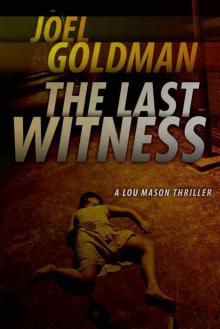 The last witness lm-2
The last witness lm-2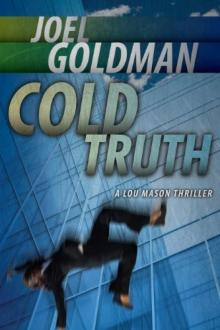 Cold Truth
Cold Truth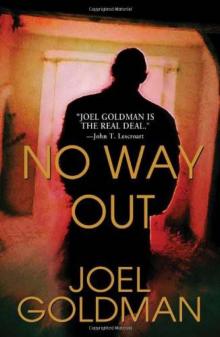 No Way Out (2010)
No Way Out (2010)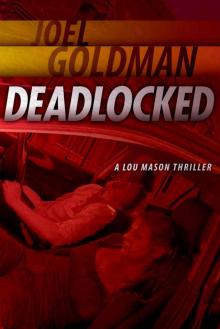 Deadlocked (Lou Mason Thrillers)
Deadlocked (Lou Mason Thrillers)![[Lou Mason 01.0] Motion to Kill Read online](http://i1.bookreadfree.com/i1/03/24/lou_mason_01_0_motion_to_kill_preview.jpg) [Lou Mason 01.0] Motion to Kill
[Lou Mason 01.0] Motion to Kill Final Judgment
Final Judgment Stone Cold
Stone Cold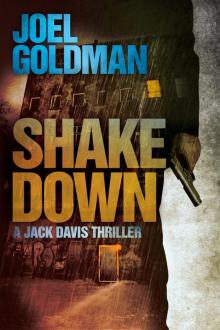 Shakedown
Shakedown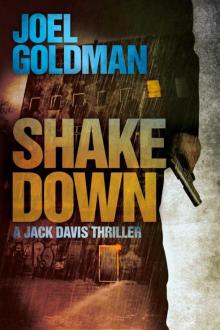 Shakedown jd-1
Shakedown jd-1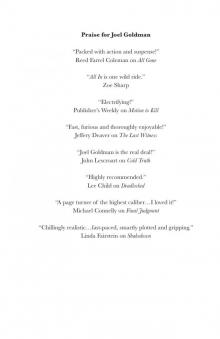 All Gone
All Gone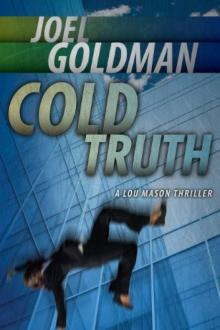 Cold truth lm-3
Cold truth lm-3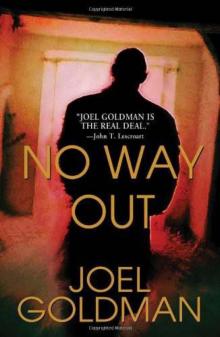 No way out jd-2
No way out jd-2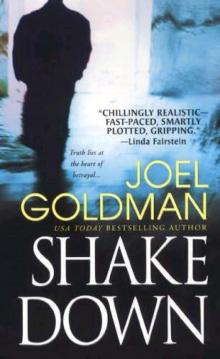 Jack Davis Mystery - 01 - Shakedown
Jack Davis Mystery - 01 - Shakedown Stone Cold as-1
Stone Cold as-1 Final judgment lm-5
Final judgment lm-5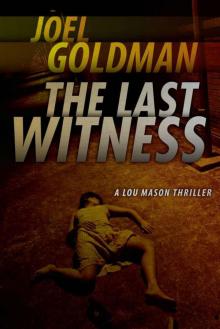 Lou Mason Mystery - 02 - The Last Witness
Lou Mason Mystery - 02 - The Last Witness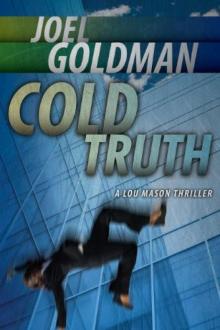 Lou Mason Mystery 03-Cold Truth
Lou Mason Mystery 03-Cold Truth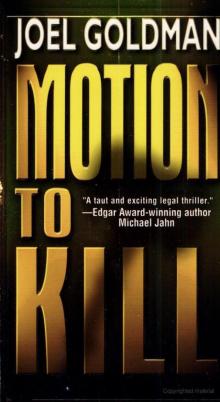 Motion to Kill
Motion to Kill Die, Lover, Die!
Die, Lover, Die!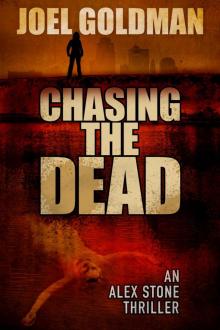 Chasing The Dead (An Alex Stone Thriller)
Chasing The Dead (An Alex Stone Thriller)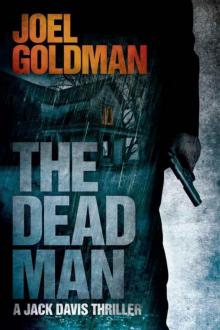 The Dead Man
The Dead Man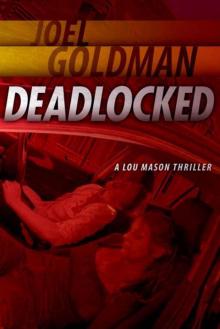 Deadlocked lm-4
Deadlocked lm-4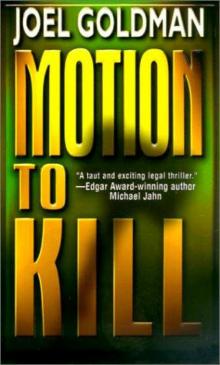 Lou Mason Mystery - 01 - Motion to Kill
Lou Mason Mystery - 01 - Motion to Kill Die, lover, die
Die, lover, die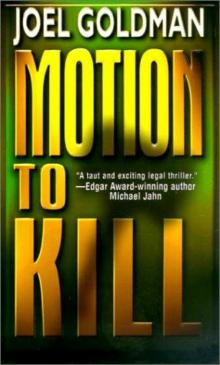 Motion to Kill lm-1
Motion to Kill lm-1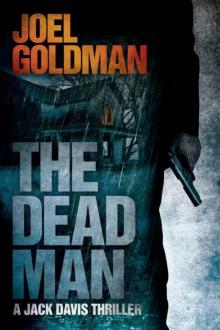 The Dead Man jd-3
The Dead Man jd-3